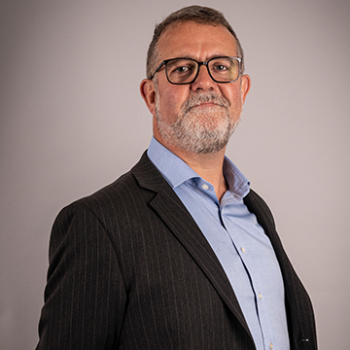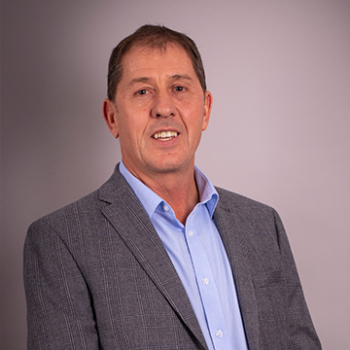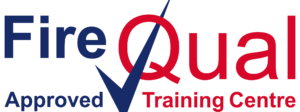Fire risk assessment is fundamental to fire safety law. Employers and any other person who has control over premises must take measures to reduce the risk from fire and make sure people can escape safely. To this end, the legislation requires that a fire risk assessment be carried out.
This comprehensive course is designed to enable persons to develop their fire safety principles, and practise application of their skills in conducting or auditing fire risk assessments. As part of the course, delegates undertake a practical workshop exercise, and their understanding is tested by written assessment on the final day.
Please be advised that there are two routes to consider for this course, as follows:
- To achieve the Level 2 qualification (Level 5 in Scotland), you will be required to attend the course and complete an assessment. After the course has finished, you will be asked to produce a portfolio of evidence and undertake a professional interview.
- You may wish to attend the course as a standalone option only, to gain CPD hours and a certificate for passing the assessment. This option does not provide a qualification.
Please note that, once confirmed, bookings to undertake the qualification cannot be amended to standalone courses. However, standalone course bookings can be upgraded to include the qualification.
Learning Outcomes
Delegates will develop:
- An awareness of relevant fire safety legislation
- An understanding of the principles, and scope of fire risk assessments
- An understanding of hazard and risk
- A basic understanding of means of escape and fire protection measures
- A pragmatic approach that can be adopted towards the assessment of fire prevention, fire protection and management of fire safety
The fire risk assessment course is designed to provide delegates with an understanding of the principles of fire risk assessment. Although the principles of fire risk assessment do not change, the time constraints on the course are such that it is often not possible to cover all types of premises in detail.
Who should attend and key benefits
This course is for individuals wishing to gain the necessary knowledge and skills to undertake fire risk assessments and develop competence in this area. Progression through all three levels (low-risk premises, medium risk premises and high risk premises) is encouraged, to ensure that full coverage of knowledge and skills are gained. Knowledge and skills are then put into practice by carrying out fire risk assessments for a set period at each level (between six and 24 months). Individuals who are new entrants to the industry will only be able to undertake the low-risk premises course (Level 2 in England and Wales or Level 5 in Scotland).
Course Entry Criteria
Fire Risk Assessments in Low-Risk Premises – No previous fire risk assessment experience required.
Delegates who wish to go on the Medium or High Risk Premises courses should have attended the FireQual Fire Risk Assessment in Low-Risk Premises Course (or an equivalent Fire Risk Assessment/Fire Safety qualification) and have been carrying out fire risk assessments in the workplace for qualifying periods.
How is the course assessed and accredited?
The course is assessed against sets of learning outcomes, in the form of five days in-person training, written knowledge assessments, and completion of two fire risk assessments at the appropriate level. The final step is to undergo a professional interview with our trainers via Microsoft Teams.
Upon successful completion of this course, you will be awarded the certification below:
FireQual Award in Fire Risk Assessment in Low-Risk Premises
Regulated Qualification Framework (RQF) England & Wales Level 2
or
Scottish Credit & Qualifications Framework (SCQF) Level 5
If you are successful in achieving the pass marks for the Level 2/5 Award in Fire Risk Assessments in Low-Risk Premises, you will receive a qualification certificate from our third‑party accrediting body. However, while this meets the ‘best practice’ qualification level and the knowledge/skills for undertaking low-risk fire risk assessments, you should make sure that you are competent to address all of the fire risks within any of the premises you are assessing.
Both qualifications, whether RQF or SCQF, are valid throughout the UK. If you work in Northern Ireland, the Scottish course should be selected, due to similarities in legislation. The course will consist of Scottish course notes, but you can select to undertake the Northern Ireland assessment.
How will I complete this qualification?
Once you have attended the course and successfully passed the assessment, you will be required to submit a portfolio of evidence containing one reflective learning document and two redacted fire risk assessment reports. The final step is to undergo a professional interview with our trainers via Microsoft Teams.
In-person learning (Classroom)
Our five days in-person training course will teach you the knowledge and skills required to undertake fire risk assessments. This is followed up by the submission of a portfolio of evidence.
Remote learning
There are no remote learning options for these courses at present.
Assessment
Your assessment will be based on the legislation relevant to the location of your training e.g. England and Wales for the Surrey courses and Scotland for the Edinburgh course. If you wish to sit a different examination, this must be specified on the booking form.
The handwritten assessment on the final day is an open book assessment, supervised by an invigilator. The purpose of this is to assess your understanding and knowledge, not recall. If you have any special requirements for completing the assessment, please ensure this is specified on the booking form.
The use of mobile phones or electronic devices is prohibited during the assessment.
Food
Lunch and refreshments will be provided throughout the week. On the final day, a working lunch will be held in the conference room. The hotel also has a bar and restaurant which delegates can use at their own expense.
Dress code
Smart casual. There is a practical exercise on Thursday, so comfortable shoes are advised. The exercise requires physical capability and use of staircases. If you have any concerns regarding this, they must be discussed in advance of the course.
Use of mobile phones
We understand that delegates may need to be contacted during the course. Mobile phones should be set to silent. The use of mobile phones or electronic devices is prohibited during the assessment.
Professional Interview
The professional interview with our trainers will be undertaken via Microsoft Teams and will last a maximum of two hours. Please note, all interviews are recorded and transcribed. The aim of the interview is to assess your overall concepts of legal, regulatory and enforcement practices, as well as the methods and practices to undertake a fire risk assessment within a low-risk building. The discussions during this process will be based upon the learning outcomes of the in-person training, your assessment, the reflective learning document and the two completed (and redacted) fire risk assessments.
Trainers:
Our courses are delivered by a mixture of experienced trainers, all of whom are practising fire risk assessors, who understand the practicalities of working in the field.






